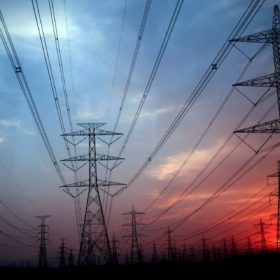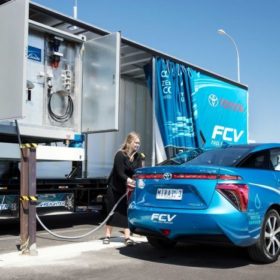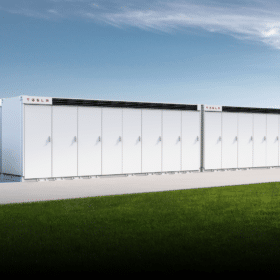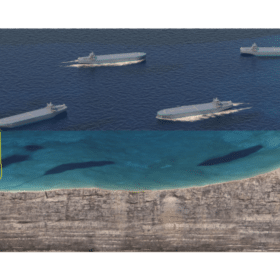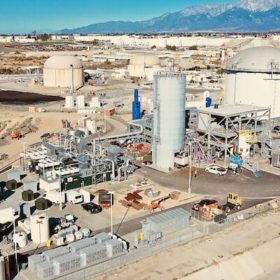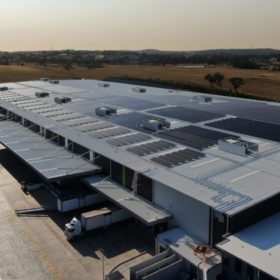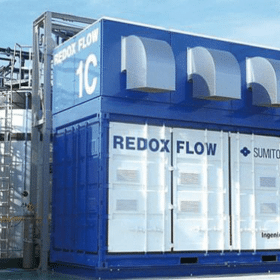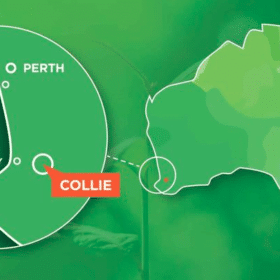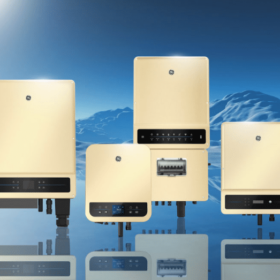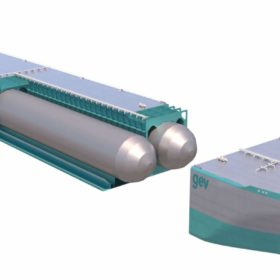Renewables could provide Australia with grid security, study shows
New research shows that renewables plus batteries could offer Australia’s electricity grid the same energy security as coal and gas generators, prompting calls for regulatory changes.
Australia’s first hydrogen refueling station opens in Canberra
Neoen and ActewAGL have opened Australia’s first hydrogen vehicle-refueling station in Canberra. It will cater to the state government’s new fleet of Hyundai Nexo hydrogen cars.
Queensland to integrate large-scale community batteries into substations
The state government of Queensland, Australia, will install five community batteries at regional substations in a bid to time-shift its abundant solar resources.
Overlooked supply chain enters Australia’s green hydrogen export mix
As the vision of Australia becoming a leading hydrogen exporter sharpens, questions about the best form in which to send our offering into the world arise. Just in the last fortnight, a Western Australia company has come out with a strong case for a new, largely overlooked form: compressed hydrogen. The ‘curve-ball’ has piqued the interest of many. “I think they’re really doing some very exciting work,” Scott Hamilton, from the Smart Energy Council, told pv magazine Australia.
New deals in Australia’s growing redox flow battery sector
Redflow has agreed to supply biowaste specialist Anaergia with a 2 MWh energy storage system, while Perth-based Technology Metals has signed a deal with Japan’s LE System to potentially make vanadium electrolyte in Australia.
Australia’s largest energy provider acquires solar installers
AGL has revealed plans to acquire Epho and Solgen Energy Group, which will make it Australia’s largest climate polluter and its largest commercial solar provider.
Australian government praises vanadium project
The Australian government has recognized TNG’s flagship Mount Peake Project – a mine that includes production plans for vanadium redox flow batteries and green hydrogen – as nationally significant.
Australian startup aims to become one of the first first Li-ion anode producer outside China
A handful of companies are challenging Chinese control of a core material in lithium-ion battery production, before the electrification of transport truly kicks off the global battery boom. International Graphite, a Perth-based startup at the forefront of this effort, recently spoke to pv magazine Australia about the surprisingly collaborative race to feed global demand.
GE chooses Australia to launch new line of solar inverters
Just as Australia thought its pioneering days were over, it has become the first country in the world to sell General Electric’s new solar inverters.
Australian green hydrogen vessel deemed ‘highly competitive’
A scoping study has found that Global Energy Ventures’ compressed hydrogen ship is technically feasible and ‘highly competitive’ to transport the hyped future fuel at distances that conveniently connect Australia to Asian markets.

